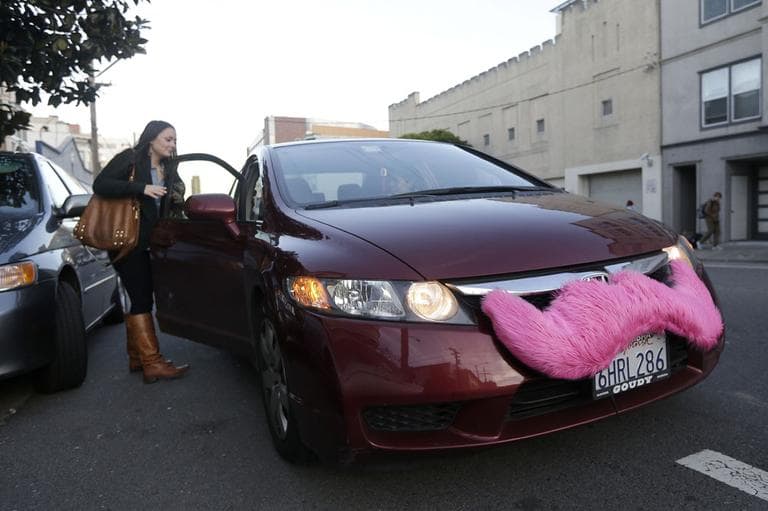Advertisement
The Sharing Economy
ResumeRenting out your power tools, your car, even rooms in your house. We look at the new “peer-to-peer” sharing economy, from Airbnb to Uber.

Once upon a time, one fundamental of the economy was pretty simple. If you wanted something, you bought and owned it, paid the fare, or maybe borrowed it from a neighbor. Today, new deal. The Internet has made it easy to buy or rent just a little bit of someone else’s stuff.
Need a room? Never mind the hotel, rent a stranger’s room with Airbnb. Need a car? Rent mine for a couple hours with Relay Rides. Need a power drill? Click here, it’s yours for the day.
This hour, On Point: the “sharing” or “collaborative” economy. It’s taking off. We’ll ask where it’s going.
- Tom Ashbrook
Guests
Arun Sundararajan, professor of information, operations and management sciences at New York University’s Stern School of Business. (@digitalarun)
Lauren Anderson, community director at Collaborative Lab.
Rujul Zaparde, CEO of FlightCar, which allows you to drop off your car for free at the airport, and while you’re traveling, Flightcar will rent it out and make money for you. He is 18 years old. (@rujulz)
Micheline Maynard, contributing writer to Forbes covering transportation. Former longtime Detroit bureau chief for the New York Times. (@mickimaynard)
From Tom's Reading List
Reuters: 'Sharing Economy' Companies Go Mainstream — "A few years ago, renting out a spare room via the lodging website Airbnb bordered on daring. Now, in thousands of cities around the world, it seems almost conventional. But as the founders of the emerging category of 'sharing economy'companies are learning, going mainstream brings a whole new set of legal and regulatory challenges."
Wired: New York Can Fight Airbnb and Uber, But the Share Economy is Here to Stay — "Freelance innkeepers across New York City shuddered this week as a judge found that a man renting out his East Village apartment on Airbnb was violating the state’s occupancy code. In his decision, Administrative Law Judge Clive Morrick found in effect that Nigel Warren was running an impromptu hotel by letting strangers pay to stay at his place for short periods of time."
The Economist: The Rise of the Sharing Economy — "Just as peer-to-peer businesses like eBay allow anyone to become a retailer, sharing sites let individuals act as an ad hoc taxi service, car-hire firm or boutique hotel as and when it suits them. Just go online or download an app. The model works for items that are expensive to buy and are widely owned by people who do not make full use of them. Bedrooms and cars are the most obvious examples, but you can also rent camping spaces in Sweden, fields in Australia and washing machines in France."
This program aired on July 3, 2013.